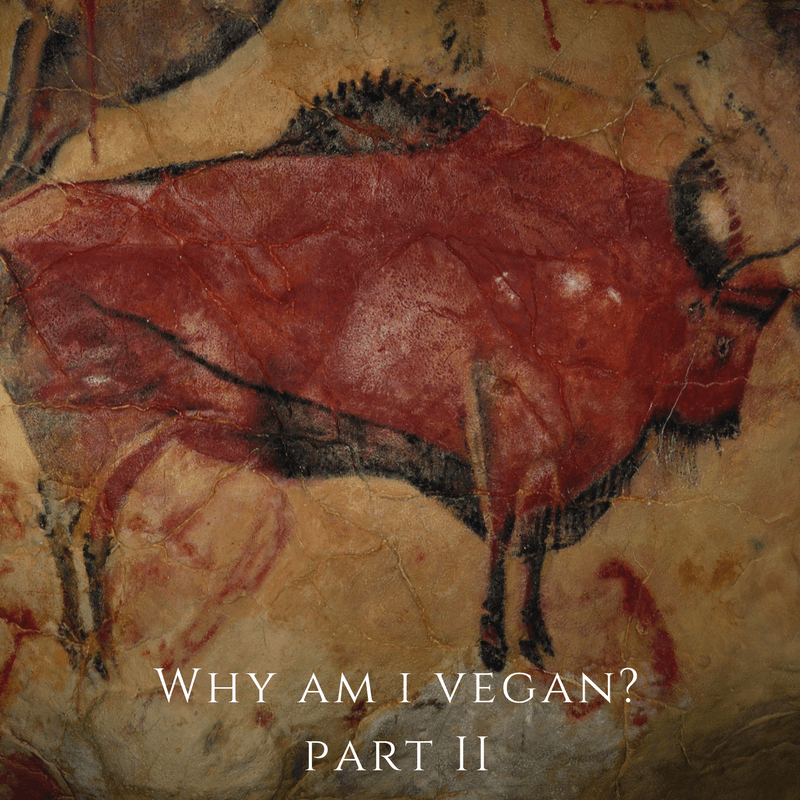Starting last week and over the next few weeks, I will be answering a question that I am often asked, “Why are you vegan?” I am not here to change anyone, but if you are curious as to why I make the choices I make, read on.
When humans hunted for game as part of their diet, before agriculture, we understood our connection to the animals we hunted. We prayed over them, held rituals, thanked the animals for their sacrifice and asked the Gods for forgiveness for taking an animal’s life. Different peoples had different rituals, but the fact that these rituals had similar underpinnings says something. One must wonder how and why these traditions came to be. Why did our ancestors, who were so much more connected to each other and the land than we are, develop these practices?
Maybe there is a psychological impact in taking the life of another, human or other, that if done through ritual allows us to keep our sanity, our mental health. And in today’s world so many people seem to be struggling with mental health issues.
According to Dr. Amy Fitzgerald et al. the number of slaughterhouse workers in a community correlates to the crime rate of that community. The larger the abattoir, the more violent crime a community will experience. It turns out that slaughter house workers, like children forced to be soldiers, experience a form of post-traumatic stress disorder (PTSD) called perpetration-induced traumatic stress (PITS). In other words, both slaughterhouse workers and child soldiers suffer from the violence they inflict.
We are still connected to the animals will kill yet we lack an understanding of that connection and no longer look after the mental health of those who kill for us. The workers are as much a part of the factory system as the animals are.
If I eat the meat produced by these abattoirs, I am complicit. If I eat that meat, I am contributing to that person’s PITS and to that community’s violent crime rate. I choose not to participate.
I would love to hear your ideas on this topic.
